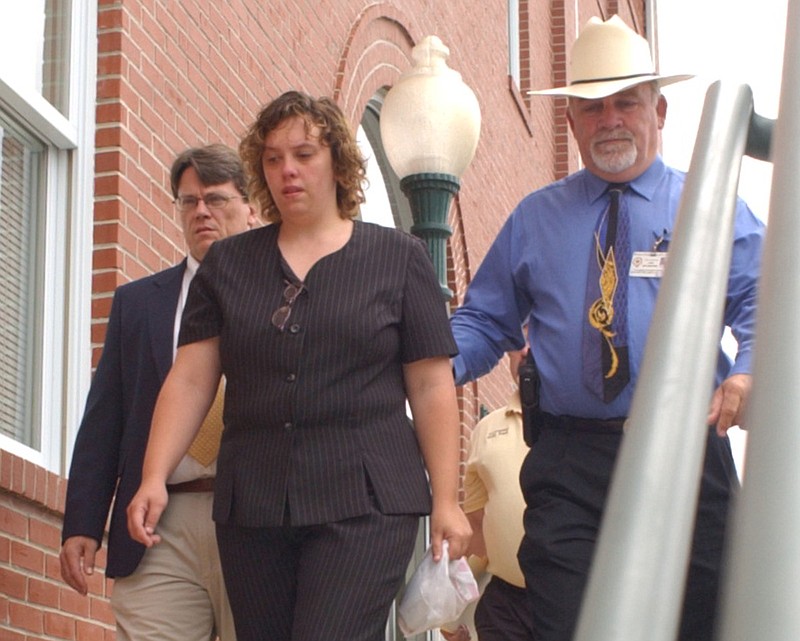A Bledsoe County woman convicted of second-degree murder in 2004 was granted clemency Thursday by Gov. Bill Haslam. Three other people were pardoned.
Michelle Lea Martin's sentence of 25 years of incarceration was commuted to supervised parole, effective Dec. 20, and continuing until Dec. 31, 2020, to allow for transition-related services, according to a release issued Thursday by Haslam's office.
Prior to this action, Martin's sentence was to expire in 2025.
Martin pleaded guilty to second-degree murder in 2004 in Bledsoe County for the 2001 homicide of her father, which occurred after she confronted him regarding abuse against her mother and the severe sexual and drug abuse he committed upon Martin beginning when she was 4 years old and continuing throughout her childhood, according to the release.
While in prison, Martin has obtained a GED and earned a degree through Lipscomb University, becoming the first person in her family to go to college.
Martin has completed numerous personal growth programs, officials said, and she has personified model behavior as an inmate and has served as a mentor and leader to other inmates, earning her clemency request the support of both prison officials and numerous community leaders and organizations.
"These individuals have distinguished themselves in both their rehabilitation and their individual contributions to the community," Haslam said, referring to Martin and the others. "After thoughtfully considering the circumstances of each of their cases, I believe exercising the executive clemency power will help further these individuals' positive influence on their communities and the lives of their fellow Tennesseans."
The other three cases arise out of Cumberland, Shelby and Sullivan counties.
Ralph Randall Reagan received a pardon for his 1980 and 1982 convictions for burglary in Cumberland County and his 1984 conviction for escape in Knox County.
Reagan was named "Citizen of the Year" by the Cumberland County Bar Association in 2008 for his service in that community and has received numerous other awards and distinctions. The Board of Parole unanimously recommended granting Reagan a pardon, and numerous Cumberland County leaders wrote in support of his request.
Robert James Sheard, Jr. received a pardon for his 1984 conviction of misdemeanor assault and battery in Shelby County. Sheard, a graduate of LeMoyne-Owen College, submitted letters of support from several community members attesting to his character and community contributions, and the Board of Parole unanimously recommended granting Sheard a pardon.
Steven Lee Kennedy received a pardon for his 1979 conviction of aiding and abetting the fraudulent use of a credit card in Sullivan County. Kennedy joined the United States Navy in 1981 and was ultimately commissioned as an officer, received numerous decorations and distinctions, and served overseas before being honorably discharged in 2008. Several military colleagues submitted letters attesting to Kennedy's character, and the Board of Parole unanimously recommended granting him a pardon.
Executive clemency is an act of mercy or leniency by the governor after a criminal conviction. A commutation is a reduction of the length or type of sentence imposed for a conviction, while a pardon is a statement of forgiveness that may assist with restoration of rights or expungement of a criminal record by a judge or overcoming the collateral consequences of a conviction with respect to obtaining housing and employment.
The governor continues to review and consider additional clemency requests.

